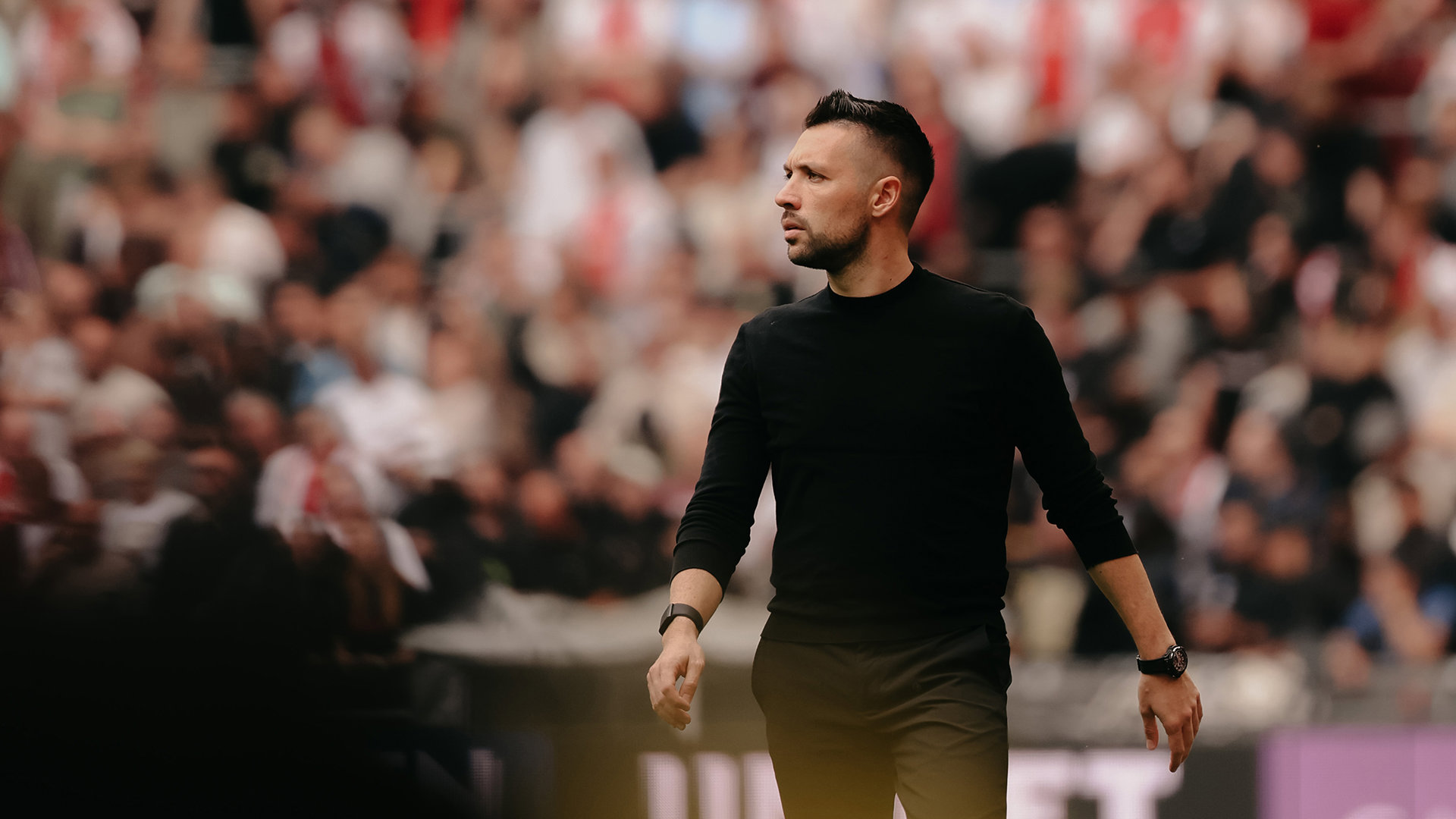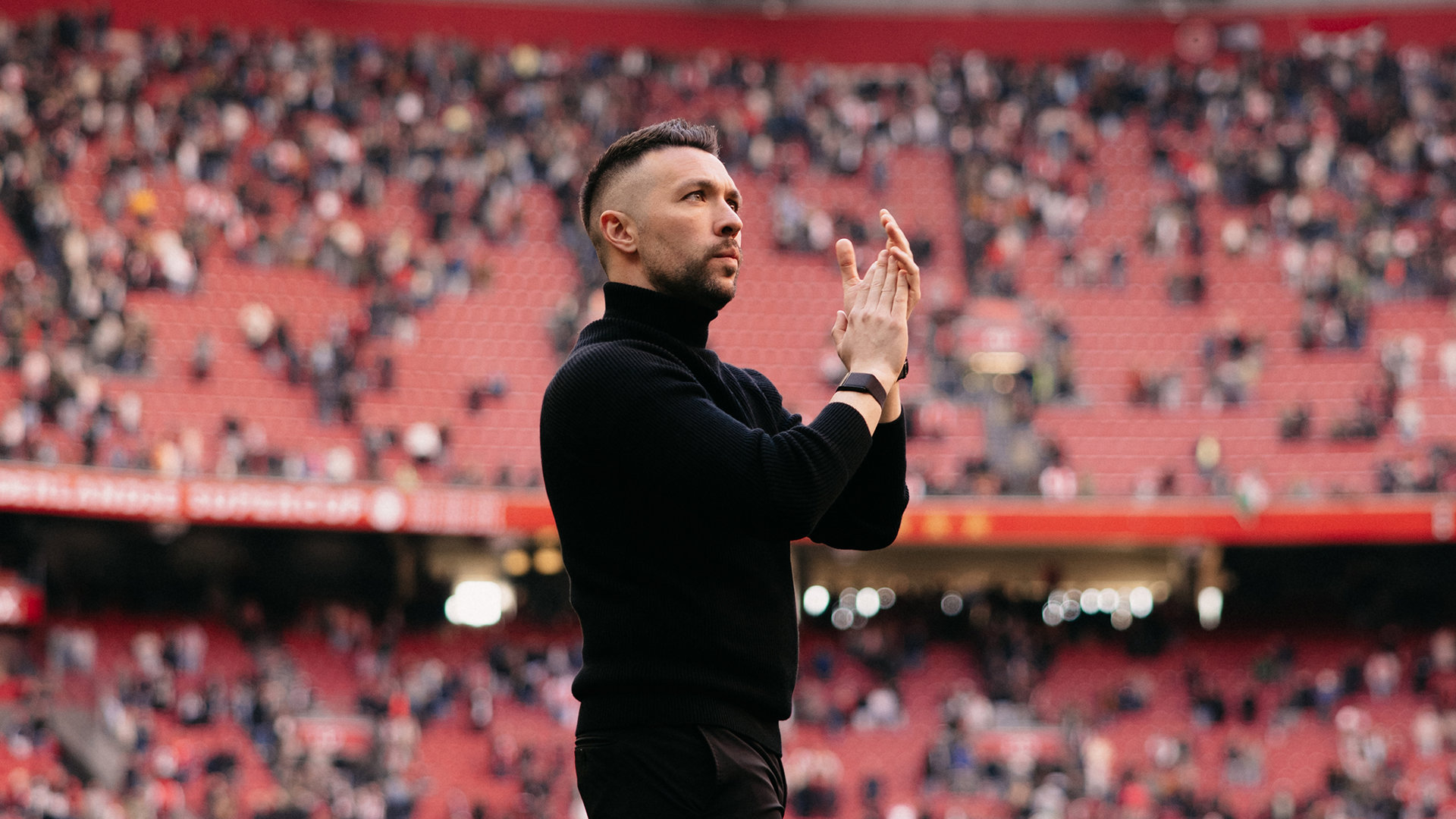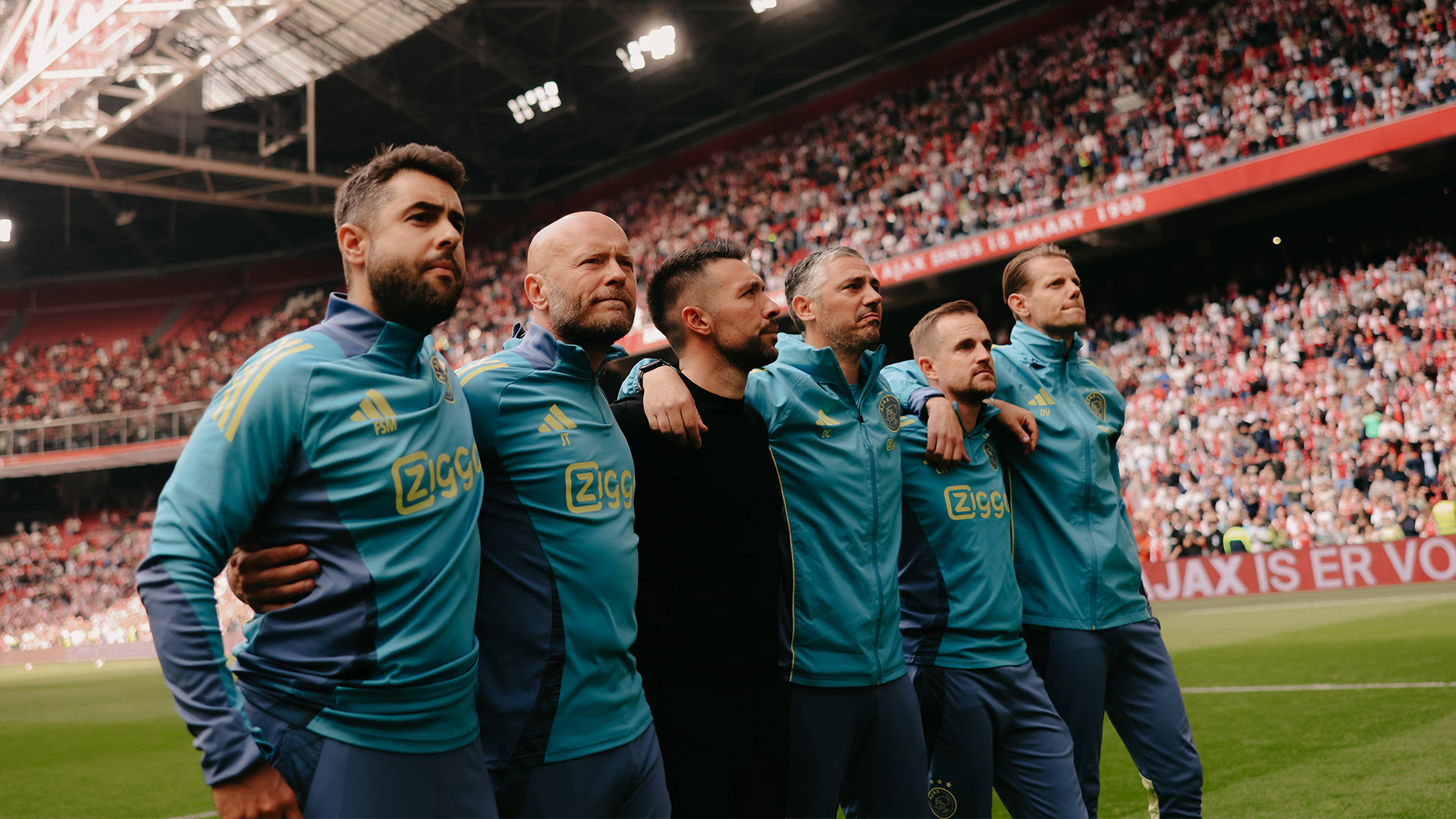At the beginning of the season, Farioli knew exactly what he was taking on: restoring defensive solidity to Ajax. After a challenging year on the pitch, the Italian managed to bring balance back to the team. From conceding 61 goals the previous season, Ajax reduced that number to just 32. This was the lowest number of goals conceded by any club in the Eredivisie.
That defensive improvement helped symbolise Ajax’s revival this season. With an average of 2,29 points per game, Ajax showed a significant improvement compared to last season’s Eredivisie campaign, when the club averaged just 1,65 points. When translated to a three-points-per-win format, the increase in Ajax’s average points between two consecutive Eredivisie seasons was only surpassed in 1964/1965–1965/1966 (+1,36) and 1996/1997–1997/1998 (+0,83).
With that 2,29 points-per-game average, Farioli ranks among the top ten Ajax managers with the highest Eredivisie average. He still trails Ajax legends such as Stefan Kovacs (2,69), Erik ten Hag (2,47), and Rinus Michels (2,32), but can nevertheless look back on a strong record over 34 matches.
Eight teenagers
Farioli also achieved this average while working with a relatively young squad. Throughout the season, the Italian coach used 37 players, including eight teenagers: Jorrel Hato, Mika Godts, Jorthy Mokio, Dies Janse, Don-Angelo Konadu, Sean Steur, Rayane Bounida and Jaydon Banel. This means that 21 percent of Ajax’s Eredivisie players this season were teenagers.
By comparison: after Ajax, Heracles made the most use of teenage players in the Eredivisie. However, the percentage at the Almelo-based side stood clearly lower at sixteen percent.
Finally, Ajax's performances against the traditional top three also stood out. The Amsterdam side beat both Feyenoord and PSV at home and away. This has only happened three times previously in club history: in the 1988/1989, 1994/1995 and 2021/2022 seasons.


